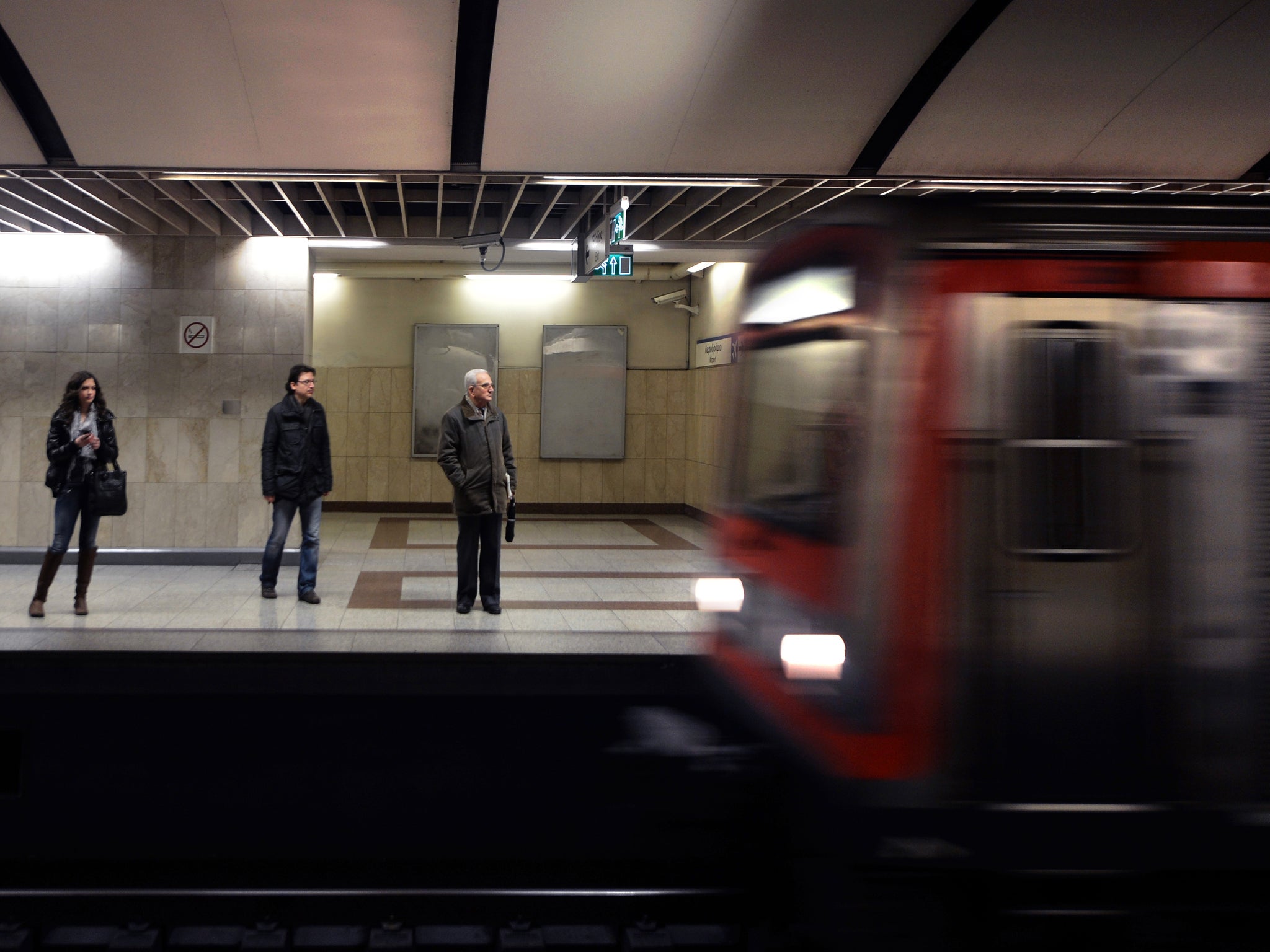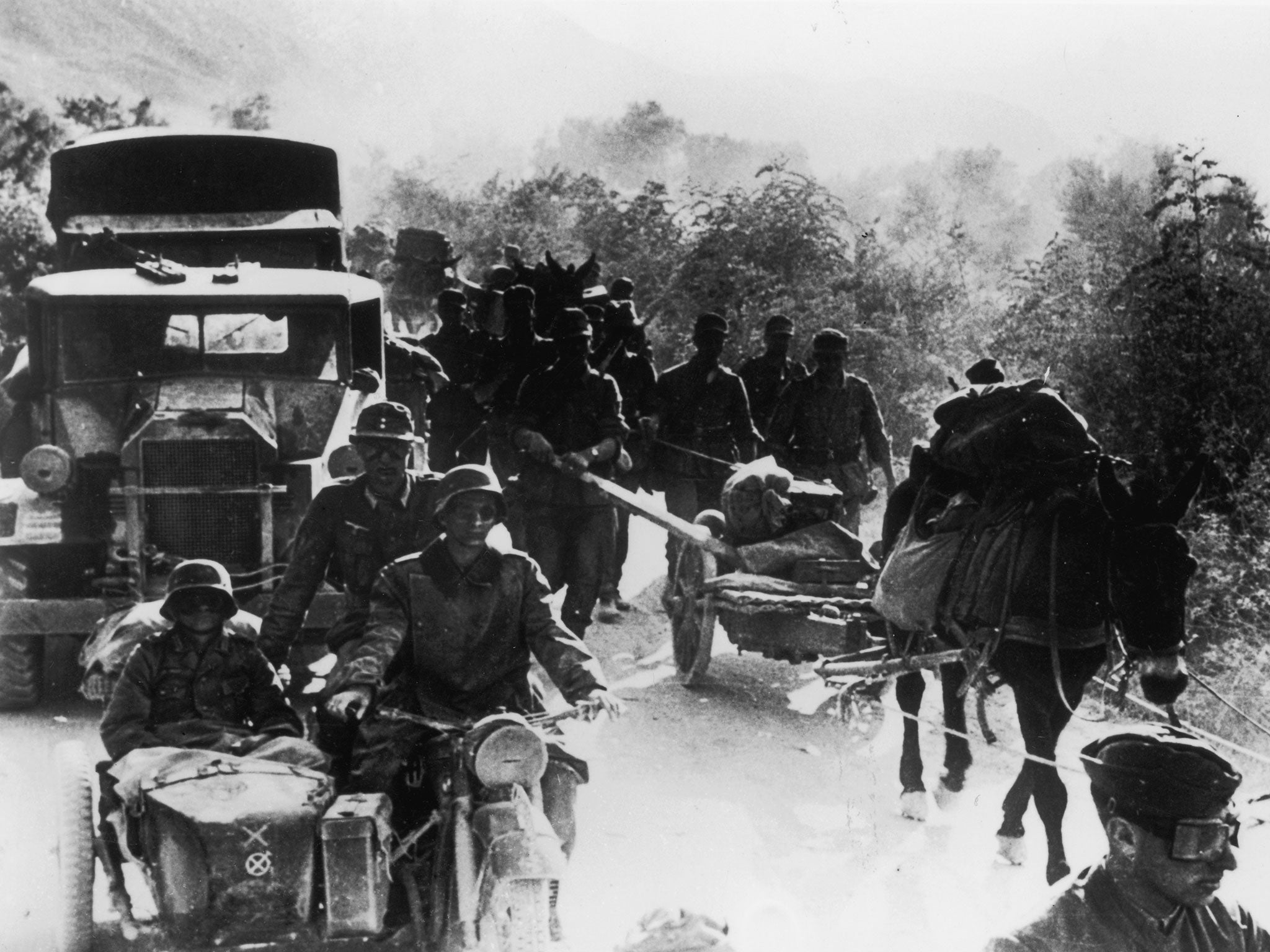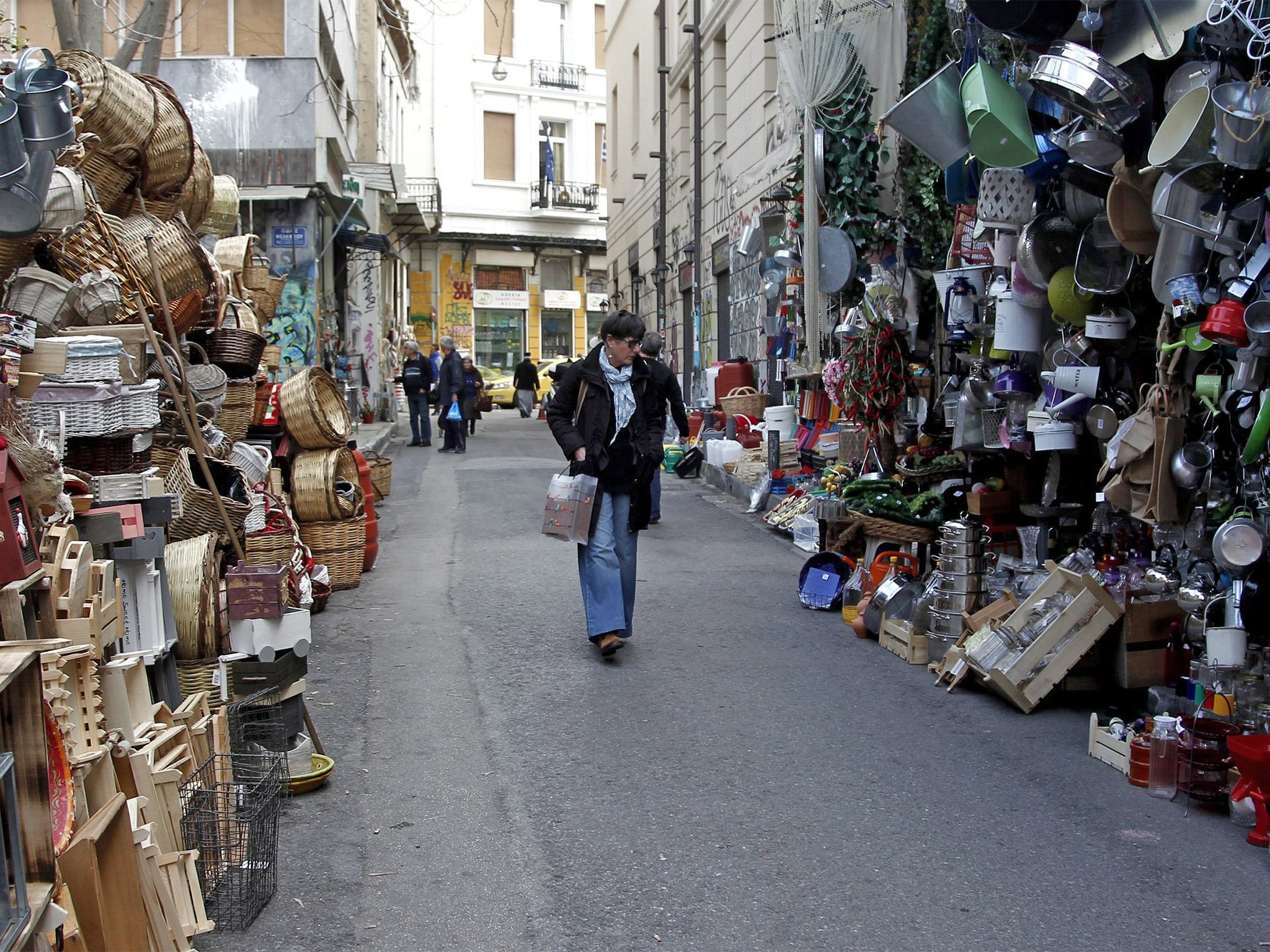Nazi invasion footage shown on Athens metro demands German war reparations
The film combines a radio report and old footage of the initial stages of the German occupation of Greece

Footage of the Nazis invading Greece is being shown on the Athens metro to highlight the atrocities committed by German soldiers during the Second World War and demand reparations.
The video clip, which lasts 50 seconds, combines a radio report on the German occupation of Greece just hours before Nazi troops reached Athens, while the accompanying footage is of invading German soldiers and military vehicles.
Five government departments, including the tourism ministry, gave the green light to the scheme, according to Der Spiegel.
It has not cost the heavily indebted Greek government any money, as the metro authorities have provided space on their video screens for free.

About 1 million people a day who use the capital’s busy transport network will watch the mini film on screens which usually display weather forecasts and adverts.
Growing tensions between the German and Greek governments, following the latter’s demand for war reparations, are likely to be exacerbated following the metro video’s release.
The Syriza government has demanded 278.7bn euros to be paid by Germany for their role in the Axis occupation of Greece from 1941 to 1944, which saw the Greek economy collapse and 40,000 civilians die of starvation in Athens alone.

A committee, tasked with investigating the matter, came to the precise figure after claiming to have received “stunning evidence” supporting its sums.
Should the full amount demanded by the Greek government be repaid, it would solve the country’s economic woes, as it represents 125 per cent of Greece’s entire GDP.
But Germany looks unlikely to repay any money, as it considers the matter closed after it paid 115m marks in compensation to Greece in 1960, as part of deals with 12 Western nations.
Join our commenting forum
Join thought-provoking conversations, follow other Independent readers and see their replies
13Comments